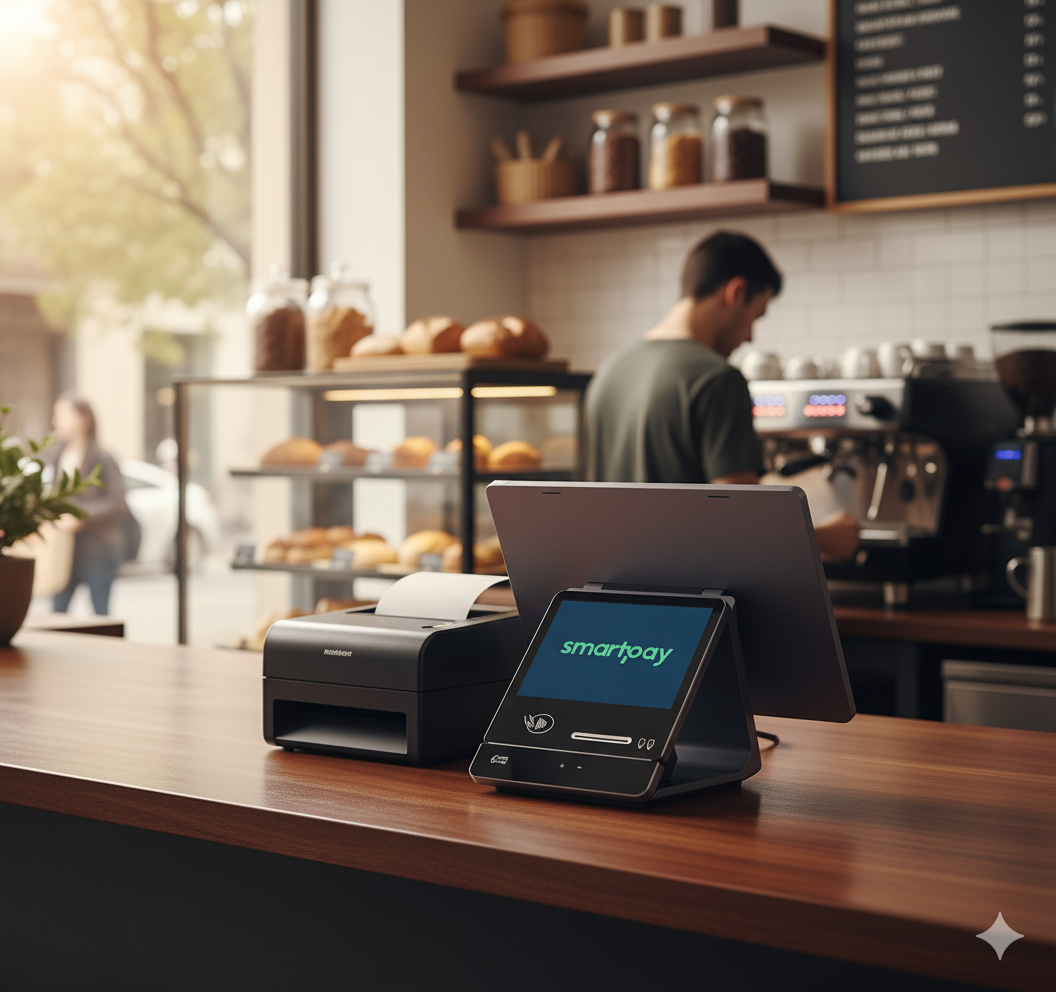
Small business owners all over New Zealand are familiar with merchant service fees—and the impact these fees can have on their bottom line. In particular, when assessing their monthly outgoings, they know that they can quickly add up and cost more than expected.
So what exactly are these pesky fees and how can you manage them in your business? In this guide, we’ll talk you through the ins and outs of merchant fees. We’ll also fill you in with the best strategies to manage this expense.
- What Is a Merchant Service Fee?
- Merchant Service Fees For Smartpay Customers
- When Are Merchant Service Fees Charged?
- How Are Merchant Services Fees Calculated?
- How Do Merchant Service Fees Impact Your Business?
- Simplify Transaction Costs with Smartpay
What are Merchant Fees?
A merchant service fee (MSF) is a fee charged by acquirers. Acquirers are institutions that facilitate transactions and settle funds into the merchant’s (that’s you!) bank account. These fees are charged for credit card and contactless payment transactions when making in-store payments.
Usually, acquirers are banks. Merchant service fees go towards covering the costs of the bank and card schemes. These complexities mean merchant service fees can become confusing (and expensive) for small business owners.
Acquirers charge your business merchant fees as a percentage of the transaction value. The exact percentage depends on factors like the type of card used or your payment processor.
Merchant service fees are not charged on all transaction types. If your customer chooses to insert or swipe their debit card and select either CHQ or SAV or simply use an eftpos card, then no additional charges will be applied. Accepting these types of transactions might be paid for in a different way, like a fixed monthly fee paid to your payment network.
Since merchant service fees can vary depending on the volume of transactions, card types you accept and the package you negotiate, this makes it even more difficult for business owners to understand how much they are paying in fees.
Simple Merchant Service Fees for Smartpay Customers
For Smartpay Low Cost Tap & Pay customers, things are a little bit different. For these customers, your acquirer is (drumroll please…) us! We think that banks should stick to banking and leave in-store payments to the experts.
How does our offering differ? Smartpay Low Cost Tap & Pay simplifies the payment experience, processing all contactless debit and credit transactions. Customers don’t need to think about different ways to pay, and your business’ MSF is one competitively low rate for these transactions. Combined with free terminal rental and no network fee*, this unlocks great savings for your business, and takes the complexity out of in-store payments.If you want to sidestep perplexing merchant service fees, contact our team today.
When Do Merchant Service Fees Apply?
Usually, merchant fees are charged to your account whenever the following are processed through your merchant facility:
- Any credit card transactions.
- Contactless debit card transactions.
- Over-the-phone card transactions.
- Online transactions.
- Mobile payments through Google Pay and Apple Pay.
Your acquirer will bill the total amount of your merchant service fee monthly, typically on a set day. Depending on your acquirer, this could be one set rate (like with Smartpay Low Cost Tap & Pay), or vary by payment type.
How Are Merchant Service Fees Calculated?
Understanding merchant service fees can feel like Year 12 algebra. Here’s our simplified breakdown of how they usually work:
Interchange Fee
This is generally the largest portion of the merchant service fee. It is a variable fee. Interchange fees are paid by your acquirer to the customer’s card issuer.
Several factors determine the costs of this fee, including:
- What card type customers use.
- Whether or not they are internationally-issued cards.
- How the card was processed (swiped, inserted or contactless payments).
Transaction Fee
Transaction fees are charged by the network provider that your terminal connects to. They are usually fixed costs. This means that if your average sale price is on the lower side, this fee will have a greater impact on your overall costs.
Acquirer Margin or Fee
This fee covers the acquirer’s operating costs and settlement services. It covers services like fraud prevention, merchant support and authorisations.
Scheme Fee
Scheme fees are paid directly to the card scheme. Card schemes are the institutions that set guidelines for card usage and help manage transactions. Common card schemes include MasterCard, Visa, American Express and Union Pay.
Scheme fees vary based on several factors, including:
- The scheme.
- The country the card was issued in.
- The card type.
- The transaction value.
Fee-ling the Pinch? How to Handle Merchant Service Fees
With the rising popularity of contactless and credit card transactions in New Zealand, merchant fees can present growing overhead costs.
In fact, the total domestic billings for credit card spending in New Zealand has risen from over $26 billion in 2010 to over $46 billion in 2023. There are no signs it’s slowing down, either.
Meanwhile, a 2022 study from Payments NZ found that 84% of Kiwis are using contactless payment methods more than ever before and this is only expected to grow.
As New Zealand consumers adopt more of these payment types, small businesses could be facing more unpredictability in their merchant service fees, while trying to balance the option of providing flexibility in payments to customers and future proofing their business to changing customer trends.
Fortunately, there are some solutions in place to help manage your merchant service fees.
1. Negotiate or Find a Different Provider
For some businesses, you may be able to negotiate different terms with your merchant services provider. This option is likely to be most effective for larger businesses with bigger turnovers.
Running a smaller business? You might be better off considering providers like Smartpay who may offer better services and more manageable costs. Remember that there’s always another option for your needs.
2. Surcharging
Surcharging enables you to pass on the cost of accepting contactless and credit card payments to your customers. This solution effectively allows you to recover the cost of the merchant fee. It can potentially save your business thousands of dollars in the long run. Surcharging is available to our Long Term Rental customers, which you can learn more about here.
A surcharge is a growing and legal practice that helps small businesses provide flexible payment options for their customers while keeping their costs low. Worried about how your customers might react to surcharging? Check out our guide on effective surcharge implementation here.
Save on Transaction Costs with Smartpay
If you’re struggling to wrap your head around merchant service fees, Smartpay Low Cost Tap & Pay may be the solution for you. It enables you to pay a single monthly cost to one provider (Smartpay) to process your in-store payments, covering the transactions and unlocking free terminal rental for the duration of your contract*. Plus, the funds settle into your business bank account of choice, saving you the hassle of switching your business banking. How’s that for good business?
Did we mention that Smartpay Low Cost Tap & Pay customers get a snazzy Android terminal? This touchscreen device is durable and has long-lasting battery life, offering a seamless payment experience.
If you’re not sure Smartpay Low Cost Tap & Pay is right for your business, you can explore our Long Term Rental and Short Term Rental options as well.
Contact our Smartpay EFTPOS specialists and discover how we can save money for your small business.
*Minimum monthly fee, turnover and T&Cs apply.




